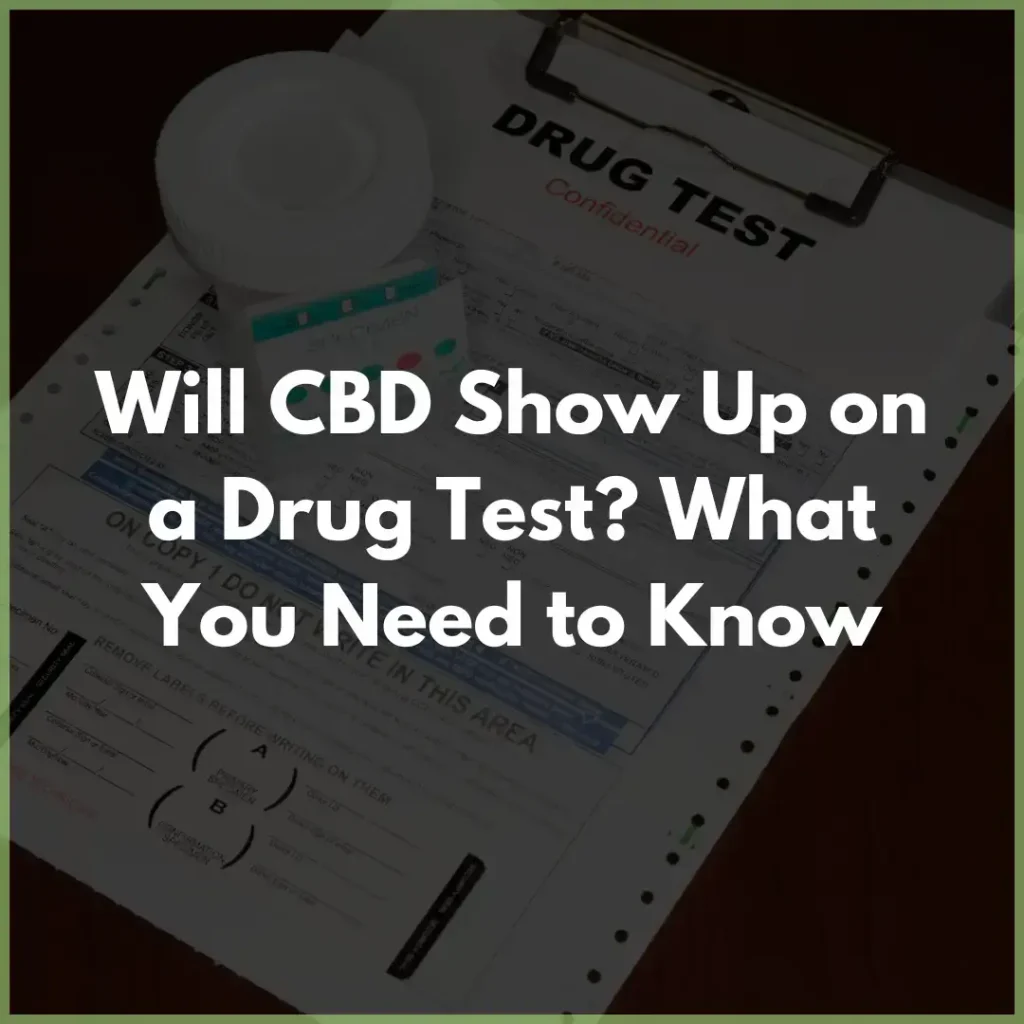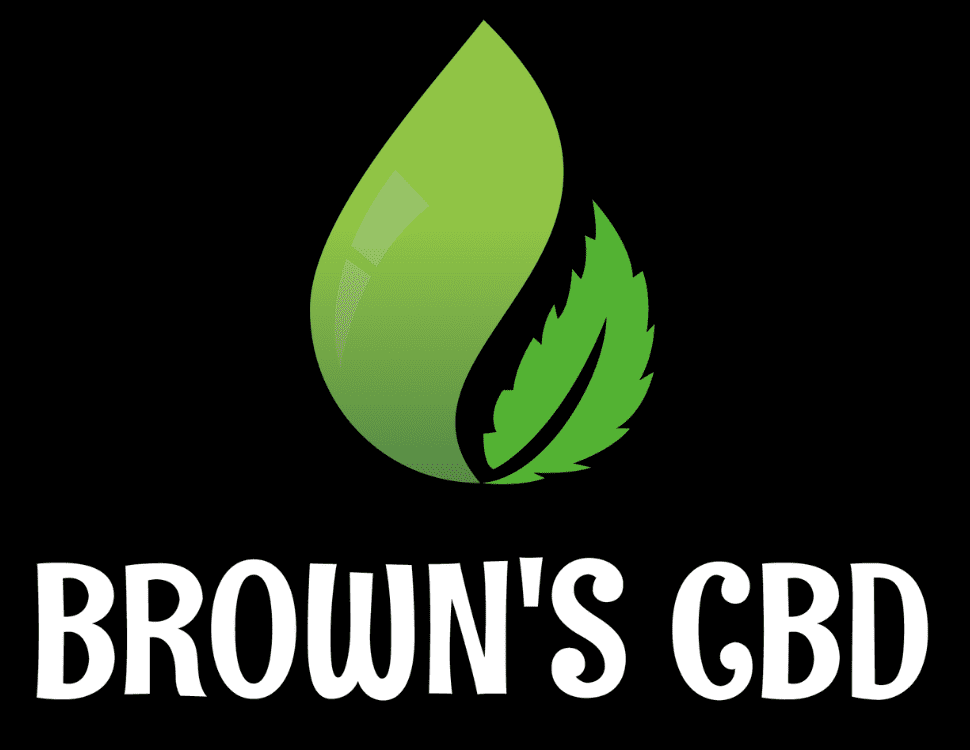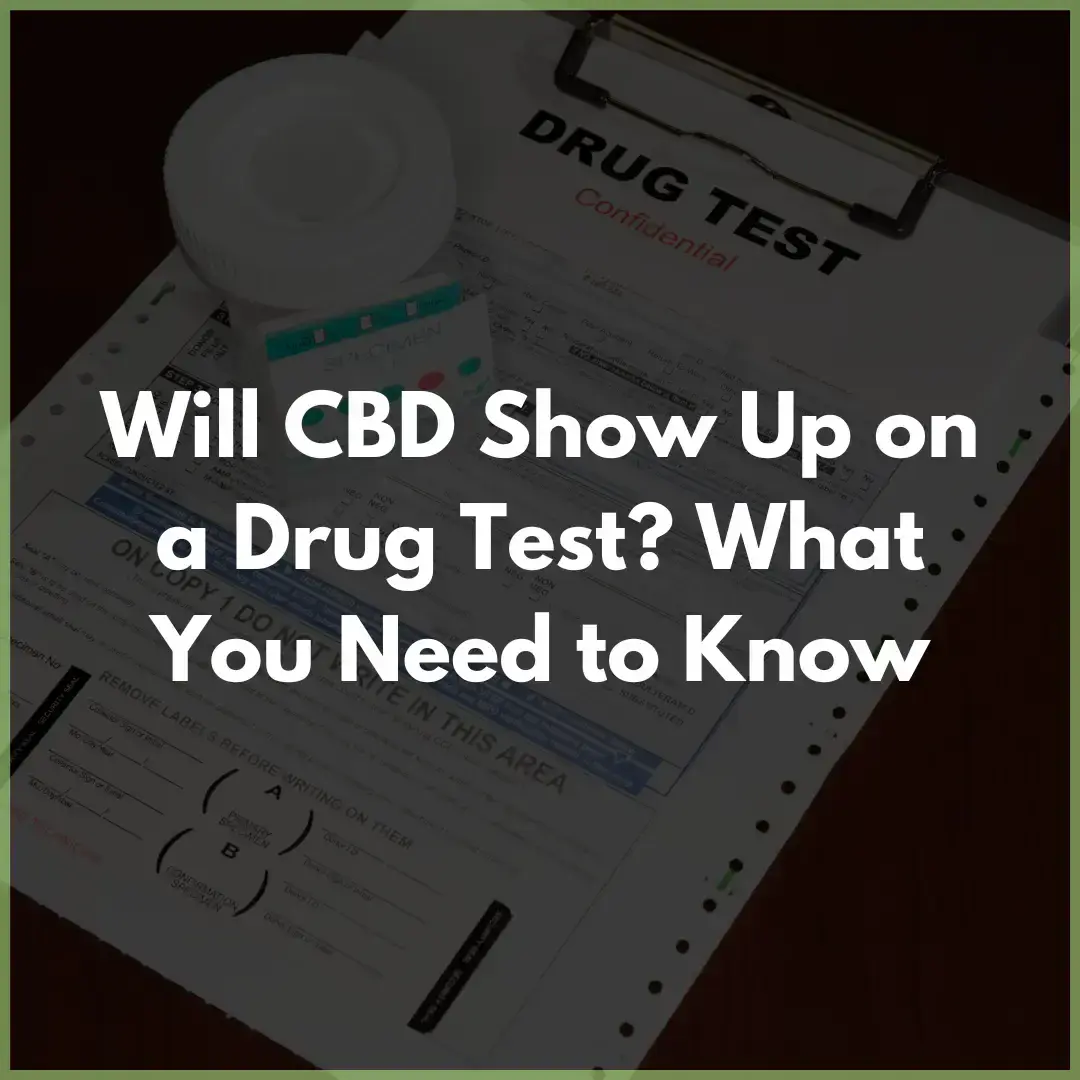
Worried if CBD will show up on a drug test? Though drug tests target THC, some CBD products have trace levels of THC, which may lead to a positive result.
Read on to explore drug testing, types of CBD, and tips to avoid failing a test
Key Points
- CBD typically does not show up on drug tests, but using full-spectrum CBD products may pose a risk due to trace THC content.
- Urine tests are the most common form of drug testing for THC, with detectable metabolites lasting up to 30 days after use.
- Choosing high-quality CBD products and managing dosage can significantly reduce the risk of a positive drug test result.
Understanding CBD and THC in Drug Testing
First, understanding the difference between CBD (cannabidiol) and THC (tetrahydrocannabinol) is crucial.
Both compounds are derived from the cannabis sativa plant but have different effects and legal statuses.
THC is the psychoactive compound responsible for the “high” associated with cannabis use, while hemp-derived CBD oil is non-psychoactive and lauded for its potential therapeutic benefits.
Despite these differences, Cannabidiol products can contain trace amounts of THC, especially full-spectrum CBD oils, which include a variety of cannabinoids and cannabidiol extracts.
Most drug tests are designed to detect THC and its metabolites, not CBD. However, the THC in some CBD products means using them could lead to a positive drug test result.
Therefore, knowing the details of drug testing and the available CBD products is vital for anyone worried about failing a drug test.
How Drug Tests Detect THC
Drug tests primarily look for THC or its metabolites, such as THC-COOH.
When THC is consumed, it is metabolised by the liver and broken down into various metabolites. These metabolites are then excreted from the body.
Urine drug tests, the most common type of drug test, are specifically designed to detect these metabolites.
These tests can identify the presence of THC metabolites for days or even weeks after consumption, depending on the frequency and amount of THC used.
Urine tests are popular in workplace drug testing because they are non-invasive, easy to administer, and have a relatively long detection window. This means that even if you haven’t consumed THC recently, it could still be detectable in your system.
While urine tests are adept at detecting THC, they typically do not test for CBD. However, THC in CBD products could still result in a positive THC test.
Types of Drug Tests and Detection Windows
When it comes to drug testing, there are various methods used to detect the presence of drugs in the body, including urine, blood, and saliva tests.
Each type of test has its own detection window, which is the period during which the drug can be detected in the body. Knowing these windows is crucial for Cannabidiol oil users aiming to avoid positive drug test results.
Urine drug tests are the most common in the workplace due to their long detection window and ease of use, leading to their widespread use.
However, saliva tests are also frequently used, particularly in situations where recent drug use needs to be detected. Employers may also use hair tests, which can detect drug use over a much longer period, sometimes up to 90 days.
Being aware of the type of drug test and its detection window can guide your decisions regarding CBD use.
Does CBD Show Up on Drug Tests?
One of the most pressing questions for CBD users is whether CBD itself will show up on a drug test.
The short answer is no; standard drug screenings do not test for CBD. These tests are designed to detect THC and its metabolites, not CBD.
However, the situation becomes more complicated when some CBD products that can contain trace amounts of THC.
In rare cases, even pure CBD can lead to a false positive result due to contamination or the presence of THC isomers.
Therefore, using high-quality, tested CBD products from reputable sources reduces the risk of a positive drug test result.
Risk Factors for Failing a Drug Test with CBD Use
While CBD itself does not appear on drug tests, several risk factors can lead to a positive THC test.
One primary concern is the presence of trace amounts of THC in CBD products. Full-spectrum CBD oil products, which contain a range of cannabinoids, can include small amounts of THC, potentially leading to a positive test result.
Contamination is another risk factor. Even CBD isolate, which is supposed to be pure CBD, can sometimes be contaminated with THC.
The frequency and dosage of CBD use also play a role. Regular use of CBD products can lead to the accumulation of THC in the body, increasing the likelihood of testing positive.
Best Practices to Avoid Positive Drug Test Results
To minimise the risk of a positive drug test while using CBD, follow these best practices:
Use high-quality CBD products from trusted brands.
Be aware that research shows 21% of CBD products sold online contain THC without declaring it.
Choose products that are third-party tested and labelled as THC-free to significantly reduce the risk of contamination and false positives.
Managing your dosage and usage frequency is another important practice.
While not perfect, broad-spectrum or CBD isolate products, such as our transdermal CBD patches, can help reduce the risk of THC detection.
Best Practices to Avoid Positive Drug Test Results
To minimise the risk of a positive drug test while using CBD, follow these best practices:
Use high-quality CBD products from trusted brands.
Be aware that research shows 21% of CBD products sold online contain THC without declaring it.
Choose products that are third-party tested and labelled as THC-free to significantly reduce the risk of contamination and false positives.
Managing your dosage and usage frequency is another important practice.
While not perfect, broad-spectrum or CBD isolate products, such as our transdermal CBD patches, can help reduce the risk of THC detection.
What to Do If You Test Positive for THC
If you face a positive THC test, knowing your options is important.
First, understand that the consequences can include disciplinary action or even dismissal, depending on your employer’s policies. It may be treated as a failed drug test regardless of the source.
To avoid this situation, abstaining from CBD products for at least 30 days before a drug test is recommended.
If you test positive, consider requesting a confirmatory test to differentiate between THC from cannabis use and trace amounts from CBD products.
Secondhand Exposure to THC
Secondhand exposure to THC is another factor that can lead to a positive drug test.
Research suggests that being in close proximity to individuals consuming cannabis can result in detectable THC levels in your body. This exposure can potentially lead to a positive drug test result, even if you have not directly used cannabis.
To avoid failing this, be mindful of your surroundings and try to stay away from environments where cannabis is being used.
Summary
In summary, while CBD itself does not show up on drug tests, the presence of trace amounts of THC in some CBD products can lead to positive test results.
Understanding the differences between CBD and THC, the types of drug tests, and their detection windows is crucial for anyone using CBD products.
Ultimately, responsible CBD use involves staying informed and making conscious choices about the products you use and how you use them.
Frequently Asked Questions
No, CBD won't show up on a standard drug test since those tests typically look for THC and its metabolites. So if you're using CBD, you should be in the clear.
To avoid failing a drug test while using CBD, stick to high-quality, third-party tested products that are clearly labeled as THC-free, and be mindful of your dosage and how often you use them.
Absolutely, secondhand marijuana smoke can lead to detectable THC levels in your system, which might cause you to test positive. It's something to keep in mind if you're around it often.

